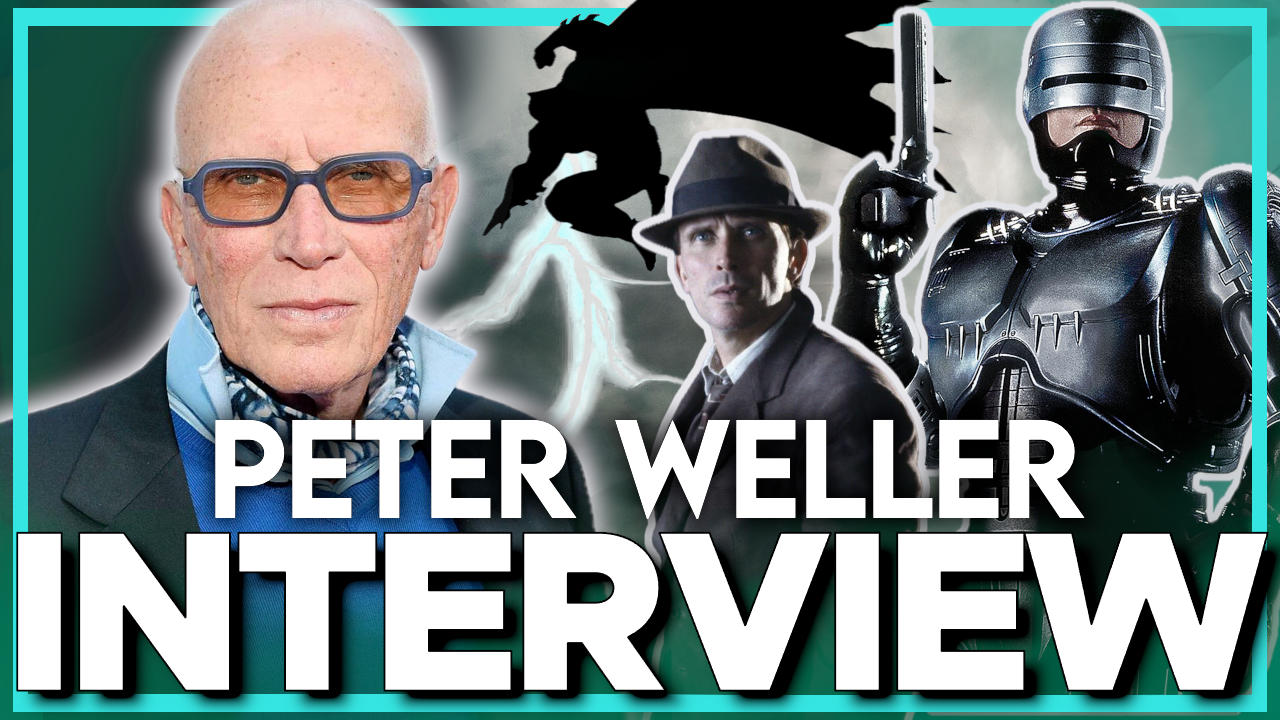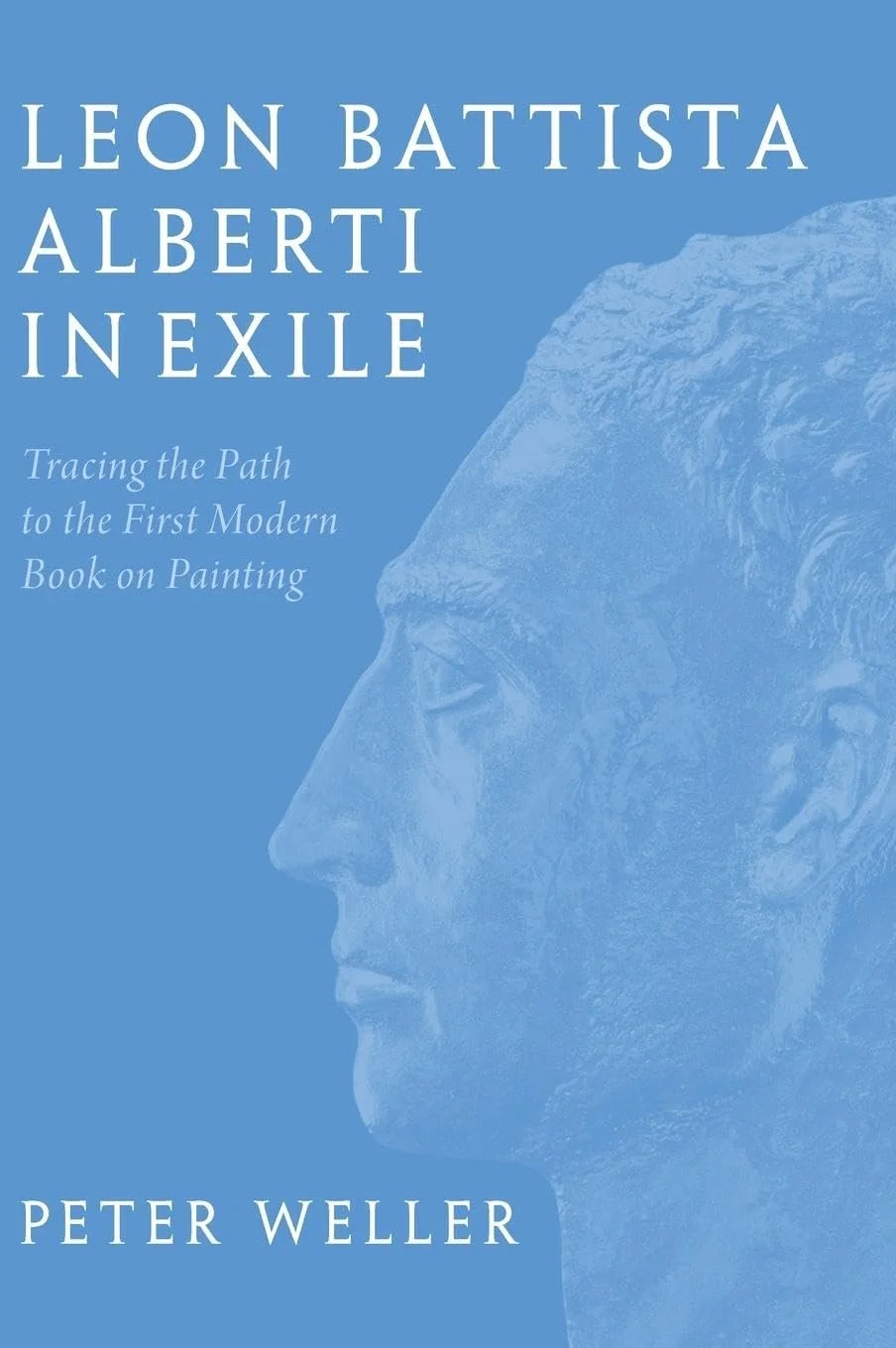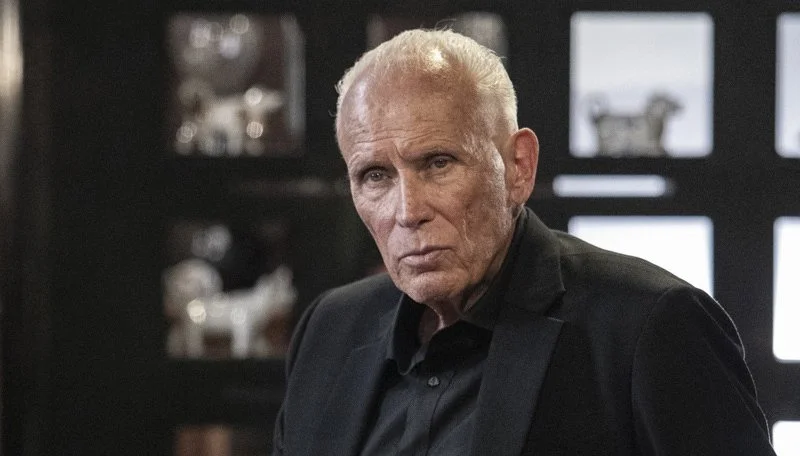Peter Weller Creates a ‘Bang’ as a Modern Renaissance Man
The iconic actor discusses what the past can teach us about the visual world around us, and that life is so comfortable in his late 70s, he never wants it to slow down.
If there’s one thing this writer may not-so-secretly look forward to, it’s reaching a stage in life where one simply does not care what others think. That doesn’t mean effrontery or curmudgeonly interacting with people, it just means being comfortable enough with yourself where you just live your life. You do what you want to do.
Peter Weller, known best for portraying Robocop nearly 40 years ago is seemingly a man who has embraced that philosophy. As he sits down with FilmSpeak to discuss his new film, ‘Bang’, Weller is often reaching for a snack mid-sentence, or taking a puff on a massive stogie as he’s been known to do. Is he mirroring his career path, and slowly controlling the room like his role as Admiral Marcus in ‘Star Trek: Into Darkness’, Christopher Henderson in ‘24’, or his character in ‘Bang’? No. That’s simply not the case. It’s borderline hilarious because the more the discussion progresses, the more it becomes clear, this is not some rude Boomer dismissing what is going on around him, this is a man in his golden years who is just living his life. A life that is pretty sweet. A life that shows no signs of slowing down.
For the full video interview, click below, Or continue scrolling for the remainder of the article.
Dr. Peter Weller, PhD in fact, earned that title studying Roman History and the Renaissance just 11 years ago. This would be an amazing feat for any age, but earning your PhD at 67 is indicative of the drive Weller shows in almost everything he does. His newest role as crime-boss Morgan Cutter in ‘Bang’ embraces that drive. Cutter mentions in the film that the infamous emperor Nero once told his mentor, Seneca that if he wants to retire, he should just kill himself.
Chomping on a big bite of his snack, Weller laughs knowing the historic levels of madness that Nero embraces, but there’s something about the philosophy that still connects with the actor. When asked if he shows any signs of slowing down, the actor almost immediately blurts out a “No”. Some of his new projects allegedly include upcoming films with David Fincher and Quentin Tarantino, but Weller continues to publish as well.
“I’ve got a book out with Cambridge University Press” Weller continues. “It's a new book about a renaissance guy who many people thought just came to Florence and wrote the first modern book on painting. I tried to prove, no, he didn't. He saw a lot of other stuff before he ever wrote that book. And so I walked you through the Renaissance. And so no, I don't stop.”
Surrounded by antiquities, smoking cigars and quoting Nero seems like a very comfortable day on the job for Weller, as if the role were tailor made for him. That aforementioned comfort comes from longtime friend and collaborator Peter M. Lenkov, who co-wrote the film and asked Weller to be a part of it.
“He asked me and it was a pleasure to do it. I dig Peter a lot”. Weller admits. “We have an ongoing friendship and subsequently, and I think he's a terrific writer. He definitely knows how to arc drama. This is great for an actor, because you can build it and you know where the high points and low points are. You know when to load up the emotional shotgun”.
Yet the shells in Weller’s proverbial shotgun, while interdisciplinary, always lead back to Ancient Rome. Makes sense considering how much of his life he’s spent studying the art and culture of not only the Renaissance, but the seeds of the culture. Years ago, his iconic smoky voice lent an older Batman a grounded and dark history in ‘The Dark Knight Returns’ double-bill of animated films. The story, in which an elderly Batman battles Superman, mirrors the legend of the mythological twins, Romulus and Remus. In the original story, written by Frank Miller, the two heroes and their conflict represent the violent pragmatism of Remus, and the blind idealism of Romulus, respectively.
Or there’s the existentialism of ‘Naked Lunch’ where Weller explored creativity, identity and addiction in his portrayal of Bill Lee (who is essentially William S. Burroughs). All of these aspects, especially creation and identity are a major part of humanism, which is in turn a major part of Weller’s thesis written over a decade ago.
Granted, it may just be the over-stimulated, self-admittedly gifted thinking of an underpaid entertainment journalist and teacher, seeking connection where there isn’t any, as even Weller admits he often “never thought about it like that”. Yet, you cannot escape the thread that connects Ancient Rome to modern film. When asked if Weller thinks there is required “literacy” when it comes to the art of cinema, much like Renaissance humanists would argue (there was required reading centered within the idea of humanism), Weller is quick to respond with an emphatic “yes” this time.
Weller as Cutter in ‘Bang’ (2025)
“I teach a seminar called ‘Antiquity to Modern Film’, so the answer is that literacy is in images. Period. Images are the thing that we all have in common”. There’s more to it though. There’s a central philosophy that Weller also embraces aside from merely studying the classics and familiarizing yourself with images from the past to inform our future. “We have to essentially not remove yourself from the physical world, but throw out the crap you don't need. It's a philosophy of letting go and staying out of harm's way - walking around the problem. Don't confront the guy who cut you off at the corner, it’s not important. What is important is living life and seeing life and enjoying life”.
This. This is exactly the stage in life mentioned at the start. This is the stage of life that this writer cannot wait to embrace, and thinks Weller is correct, we should all embrace it. We should all smoke a proverbial cigar, and take another big bite of our proverbial snackage.
That, and read up a bit on the Renaissance when you can.




